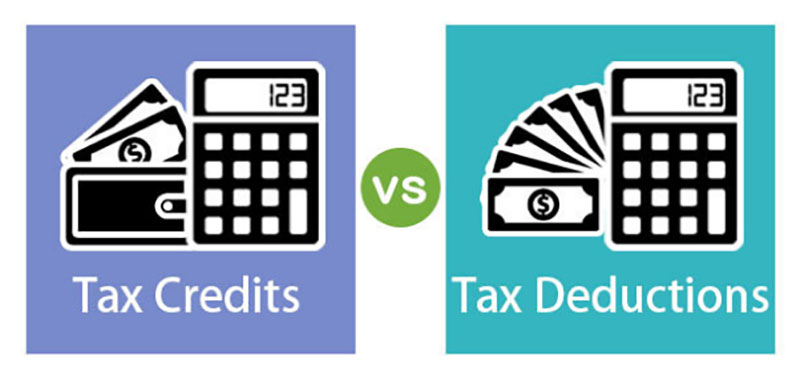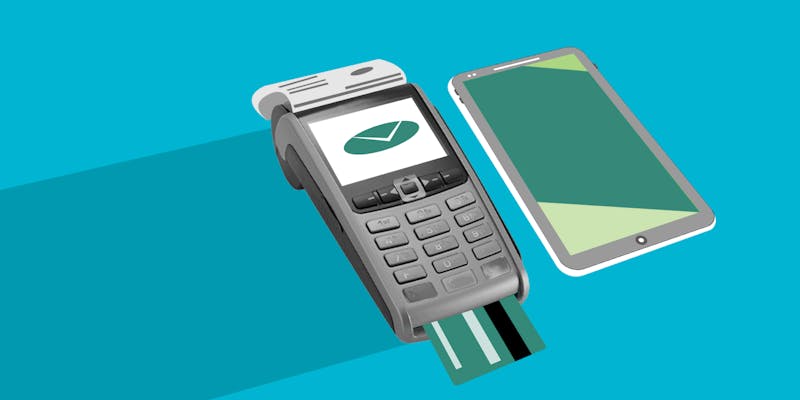Taxes can be a major source of stress and confusion if you're a business owner. Figuring out what deductions you qualify for can be impossible—especially when tax codes are always changing! But understanding the rules and regulations around deductions doesn't have to be daunting.
This guide will help remove some of the mystery from your next tax return by detailing which deductions are available in 2023 (and how they could benefit you). Learn more about taxes, deductions, credits, and other important elements of the filing process, and start maximizing your savings today!
How Credits and Deductions Work Together
When filing taxes, credits and deductions are two of the most important tools for lowering your tax bill. Credits reduce the tax you owe – dollar-for-dollar – while deductions reduce your taxable income. You can maximize your savings and pay the least taxes by taking advantage of credits and deductions.
The key to understanding how credits and deductions work together is to know the difference between them. A tax credit, such as the Earned Income Tax Credit (EITC), gives you a dollar-for-dollar reduction in your total tax bill, meaning that for every $1 credit claimed, you will reduce your taxes by $1.
On the other hand, a deduction reduces your taxable income, meaning that for every $1 of deduction claimed, you will reduce your taxes by the percentage represented by your tax bracket.
Understanding how credits and deductions work together can ensure you take full advantage of the tax breaks available. To help with this process, we have compiled a comprehensive guide to the most commonly used credits and deductions so that you can make the most of your tax return.
Tax Deductions vs. Tax Credits

Credits for Individuals
When filing your taxes, it's important to understand the difference between tax deductions and tax credits. Tax deductions reduce the amount of taxable income you report, while tax credits lower the taxes you owe directly.
In terms of personal finances, there are several types of available credits for individuals. Depending on your specific situation, these can range from a Child Tax Credit to an Earned Income Tax Credit. Additionally, deductions may be available for certain expenses, such as student loan interest or medical expenses.
Before filing your taxes, reviewing the most up-to-date tax deductions guide is important to ensure that you take full advantage of all the deductions and credits you qualify for. With the right guidance, you can ensure you're maximizing your savings.
Deductions for Individuals
In addition to tax credits, many tax deductions can help reduce the amount of your taxable income. These can include deductions such as charitable contributions, mortgage interest payments, and education expenses.
Deductions for individuals can vary from year to year, so it's important to stay up-to-date on any changes in the tax code by checking out a comprehensive tax deductions guide. By using the right resource, you can be sure that you are taking advantage of all the deductions and credits you qualify for.
Also, keep records of any expenses that could be deducted from your taxes. This includes receipts from doctor’s visits or charitable donations and other financial documentation. Having these records can help maximize your savings when it comes to file.
Tax deductions guide

Tax deductions are an important part of filing your taxes. Understanding the various tax deductions available can help you maximize the money you save on your taxes each year.
This guide will provide an overview of the different types of deductions, tips, and resources to help you make the most of them. Here’s a quick guide to help you streamline your tax deductions.
Know your industry
Different industries may have different tax deductions available for businesses or individuals. Knowing the tax deductions associated with your particular industry can help you maximize your savings and take advantage of all the possible deductions.
Do some research to find out what kinds of deductions are available to you, and keep track of them throughout the year so that you don’t miss out on any potential savings.
Keep track of expenses.
Keeping track of your business and personal expenses is essential for taking advantage of deductions. Make sure to have a system in place that allows you to log each expense throughout the year. This will make it easier to determine which deductions are applicable when tax season rolls around.
Know what you can’t claim.
It’s important to know which expenses are not eligible for deductions. This includes personal expenses such as vacations, entertainment, and business expenses considered “luxuries.”
Ensure you familiarize yourself with IRS guidelines to avoid accidentally claiming ineligible tax expenses.
Keep efficient records
Having accurate and up-to-date records is essential when filing your taxes. Organize all necessary documents, such as receipts and invoices, so you can easily access them during tax season.
It’s also helpful to keep track of your deductions throughout the year to have a comprehensive list when it’s time to file.
Stay informed as things change.
Tax laws constantly change, so stay informed of any changes that may affect your deductions. Tax professionals can be a great resource for staying up-to-date on the latest developments in tax law, and they can help you identify any potential deductions you may have overlooked.
By following this guide, you’ll be better prepared to maximize your deductions and save money when tax season rolls around.
FAQs
How can I reduce my taxable income?
The most common way to reduce your taxable income is through deductions. A deduction reduces the amount of your income subject to tax, resulting in a lower taxable income and, ultimately, a lower tax liability. To maximize savings, you must understand your eligible deductions and how much you can deduct.
What deductions can I claim without receipts?
When claiming deductions, you typically need proof that the expense was incurred by providing receipts to support your claim. However, certain deductions do not require receipts and can be used without them.
These include the standard deduction, medical expenses (as long as they exceed 10% of your adjusted gross income), charitable donations, student loan interest payments, and qualified business expenses.
Is bad debt a tax deduction?
Bad debt is generally not deductible as a tax deduction. Bad debt refers to money that was loaned out but could not be collected and is typically deducted from the business’s books rather than as an individual taxpayer’s expense.
Conclusion
This guide has helped give you an overview of using tax deductions for your business. It’s important to remember that various deductions are available, and they can help you maximize your savings and profitability.
Tax deductions are complex, so consult a professional or do additional research. By understanding the different types of deductions and how to use them, you can save time, money, and hassle.




